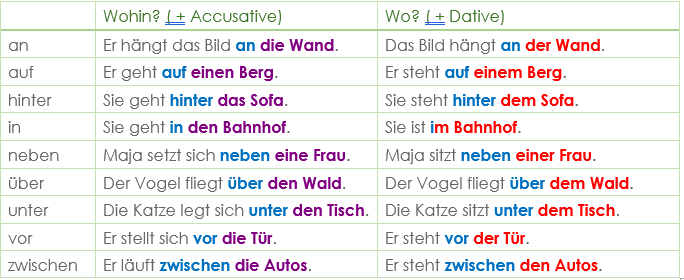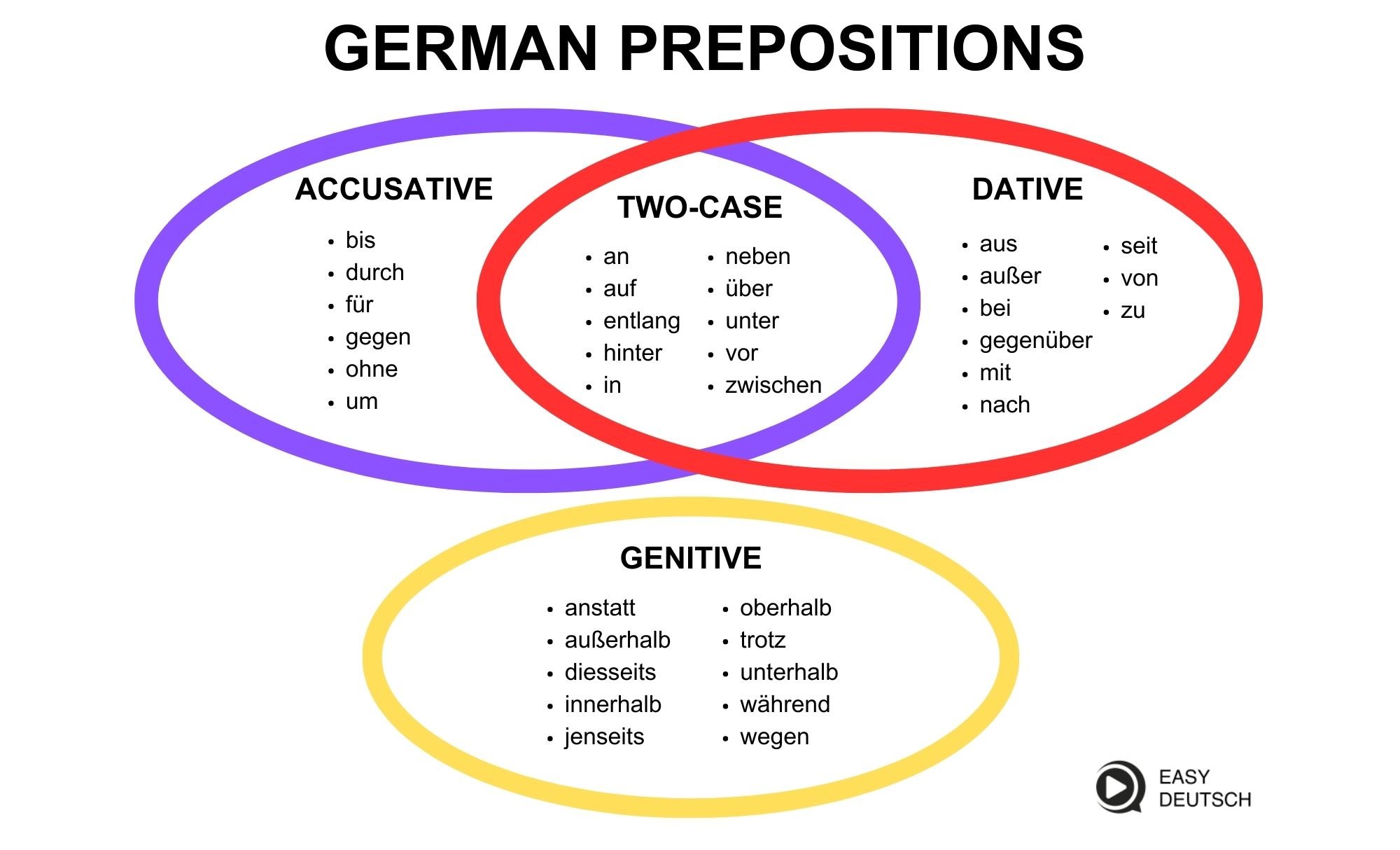What are Two-Case Prepositions? (Wechselpräpositionen)
Luckily, most prepositions are related to only one case - no matter the situation, they always require that case.
However, there are some so-called two-case prepositions (two-way or alternating prepositions) - they sometimes use dative and other times they use accusative, depending on the situation.
Here are the two-case prepositions: zwischen, auf, neben, vor, an, in, hinter, unter, über
Prepositions: Dative or Accusative?
Accusative: Question = Wohin?
The accusative is used when there is movement from point A to point B.
Dative: Question = Wo?
The dative is used when talking about one set location (no movement from A to B).
Examples

Gramato: Your German Grammar Coach
Try Gramato now!
Powered by EasyDeutsch AI

This is how Gramato can help you!
Gramato helps you with all your German grammar questions – fast, to the point, and always based on the trusted content from https://easy-deutsch.com.
Gramato offers fill-in-the-blank exercises on a variety of grammar topics, tailored to your level so you can practice exactly what you need.
Get answers in multiple languages – German, English, Spanish, French, and more. That way, you can understand grammar in the language you feel most comfortable with.
Clear and simple grammar explanations – so you can learn faster and smarter with Gramato.
Ask your questions or practice anytime with Gramato – no wait, just results!
Related Topics:
Entire lesson in German only: Wechselpräpositionen
Here you will find an overview of all topics related to German Prepositions:
- Was sind Präpositionen? (What are Prepositions?)
- Temporal Präpositionen (Temporal Prepositions)
- Lokale Präpositionen (Local Prepositions)
- Präpositionen mit Artikeln (Prepositions with Articles)
- Zweiteilige Präpositionen (Two-Part Prepositions)
- Fragen mit Präpositionen (Questions with Prepositions)
- Präpositionen mit Akkusativ (Prepositions with Accusative)
- Präpositionen mit Dativ (Prepositions with Dative)
- Präpositionen mit Genitiv (Prepositions with Genitive)
- Verben mit Präpositionen (Verbs with Prepositions)
The Prepositions always determine the case. Therefore, you must be familiar with the deutschen Fällen (German cases):
You can find an overview of all topics under German Grammar.
Recommendation: Free video lessons every Tuesday & Thursday
Sign up now: Email German Grammar course



